How to Train Body, Mind, and Nervous System for the Outdoors: My Conversation with Globetrotters Podcast
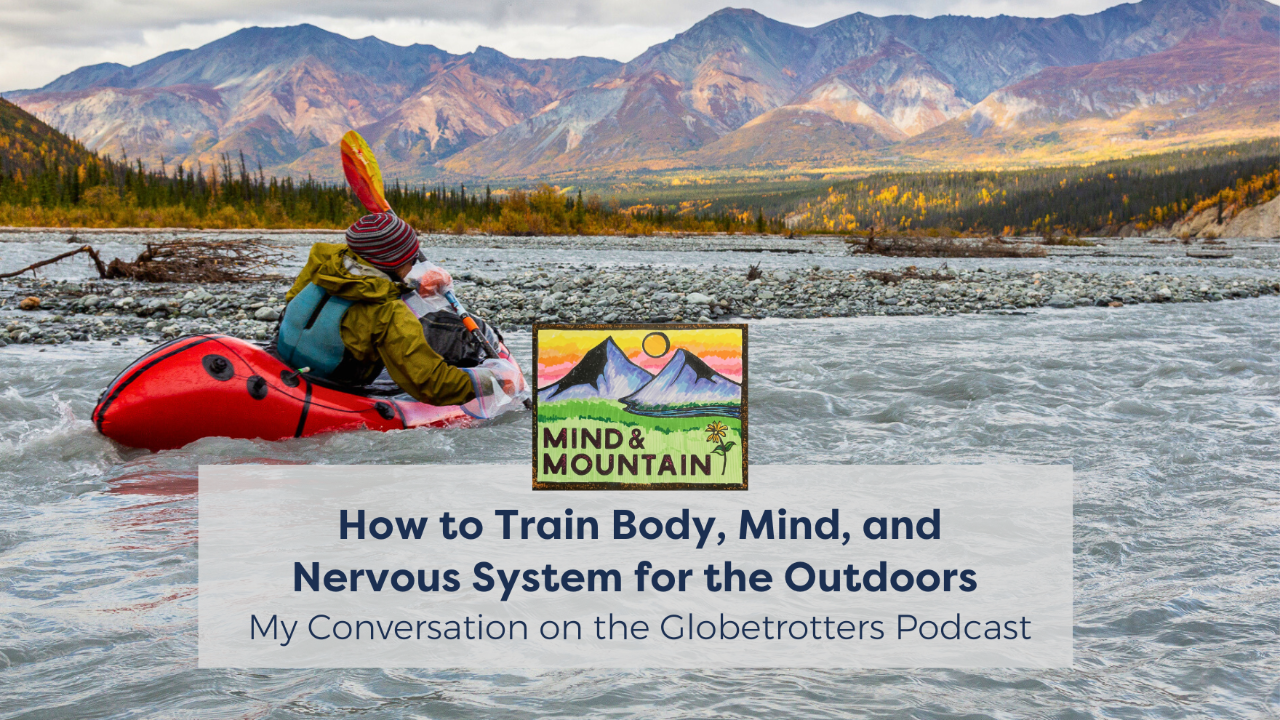
Adventure, Nerves, and Nature on the Globetrotters Podcast
I recently joined Jonathan Otero on the Globetrotters Podcast for a heartfelt conversation about outdoor adventure, nervous system resilience, and what it really means to belong in nature. From learning to backcountry ski as an adult (with plenty of crashes along the way) to three-week wilderness trips in the Arctic, we talked about the joy, struggle, and lessons the outdoors offers.
We dug into how strength isn’t just about muscles, but about nervous system capacity and emotional resilience. Jonathan and I also explored the culture of outdoor recreation—everything from “bro vibes” and gatekeeping to finding more inclusive, compassionate ways of adventuring together. And of course, we swapped stories about Alaska, grizzly encounters, and why I keep returning to the Brooks Range year after year.
Topics We Covered:
-
(1:30) Growing up in Alaska and finding my way into outdoor culture
-
(5:14) What “mindful interval trai
...
Preventing Knee Injuries: Checking Your Risk for ACL Injury

Overcome ACL Risks and Boost Outdoor Resilience
As outdoor enthusiasts, injury is one of the hardest things we deal with. Being sidelined and missing out on a season of your favorite activity is heartbreaking! We would know: as a teenager, I tore both ACLs within a couple of months of each other! Those injuries were devastating at the time, and took a lot of work to come back from.

Among skiers, ACL tears are the most common knee injury. And they are especially common among women.
The good news is we have tools we can use to understand how likely we are to injure our knees. Armed with that knowledge, we can make smart decisions about how to train to reduce our risk. Of course, there's no way to guarantee remaining injury-free. Life happens! But we can stack the deck in our favor, and that’s powerful.
What follows is an assessment of your personal ACL injury risk. Knowing what your weak points are can be scary, but with that information, we’ll be able to develop a plan for what...
How to Shift Seasons Gracefully: Coming Down from a Busy Summer

From High-Energy Summer to Cozy Fall
Up here in the northern hemisphere, summer alread passed us by and fall and winter are moving in fast! Especially in northern latitudes like Alaska, temperatures and daylight hours are dropping quickly… we even have frozen lakes and ice skating season underway!
We’ve talked before on the blog about the concept of “wintering,” including how the colder, darker season has inherently different energy and emotions compared to summer. But sometimes it can be hard to let go and flow with the seasons.

Summer is a very high-intensity season, which means it can be fun for a while, but isn’t sustainable.
Especially in the high north like Alaska & Canada, the long daylight hours and short summer season lends itself to a fast pace & pressure to make the most of the light. Fall sometimes feels like that feeling of stepping off of a moving walkway and onto regular ground — a bit jarring and hard to prepare for.
With fall starting to close in, it’s a great...
Beyond the Visible: Adapting to Life & the Outdoors with Chronic Illness

Reclaiming an Active & Outdoor Lifestyle with Chronic Illness
This is a guest blog by Mind & Mountain friend & member Rachel Collins. Rachel is a skier, park ranger, & mom, and in the last few years has been learning how to navigate the challenges of chronic illness alongside her active life. Rachel leads our Spoonie & Invisible Illness Affinity Group inside of Ski Babes!
Read on for more of her story:

December 2022. I woke up with big plans today- big breakfast with the kiddo, Ski Babes workout, deep cleaning the house for guests, but as I crack my eyes open I realize none of those are going to happen today. I feel lethargic, nauseous, and despite my best intentions, my brain feels like molasses. I know this feeling now, my blood pressure is too low and my nervous system is on the fritz again. Is it the storm rolling in? Did I hit my salt targets yesterday? Did I eat something new? Maybe I overheated in my sleep again?
This is life with a chronic illness- while no one has a pe...
Podcast: Mindset, Perfectionism, and Resilience in the Outdoors
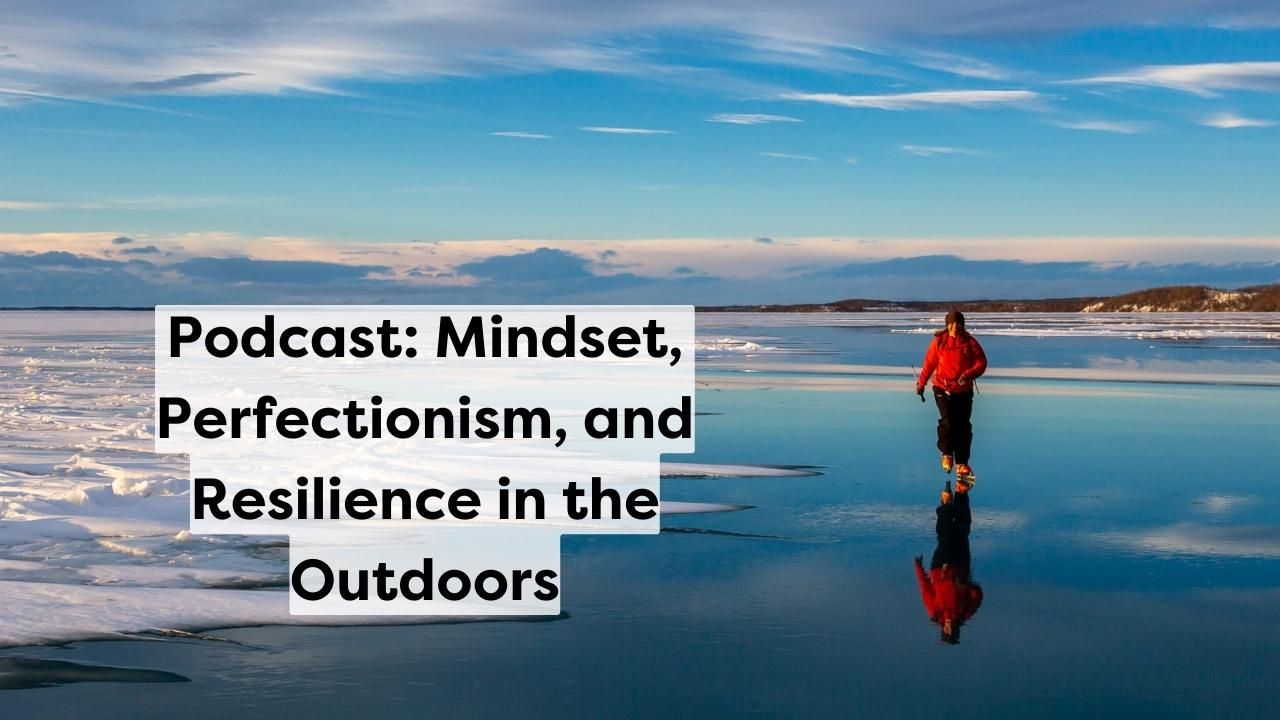
Replacing Self-Doubt and Perfectionism in the Outdoors with Compassion and Inclusion
I recently joined Jacalyn Gross on the Women Empower Active podcast to chat about our outdoor stories and mindset reflections. The podcast is a production of UR Sportswear, a running apparel brand for women. Jacalyn and I had an open and honest conversation that we hope will normalize the messiness of each of our outdoor journeys.
Jacalyn and I focus on different outdoor activities in very different environments–she’s primarily a trail runner in the Pacific Northwest, and I’m a skier, backpacker, and nordic skater in Alaska. We had a great time chatting about the themes that are common to both of us, and we bet you’ll relate to our stories, too.
We focused a lot of our chat on how mindset matters in the outdoors, and what a difference it can make for our experiences. We talked about the power of community and our hopes for inclusivity and acceptance in outdoor spaces. Plus, we peppered in some pract...
How to Prepare for the Backcountry: Strength and Mindset Training Tips
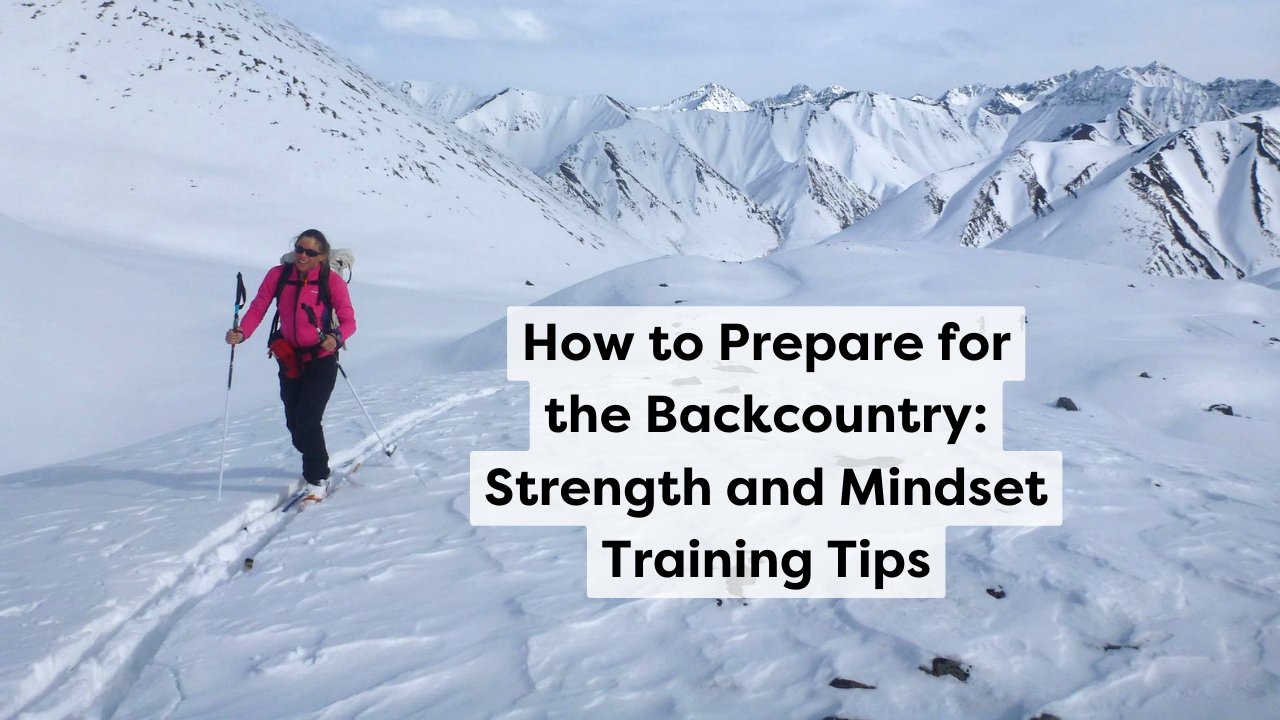
Tuning up our bodies & minds for the season
Winter is here and many of us are spending as much time as we can playing in the snow and the mountains! As we move through this winter season, let’s talk about how to tune up our bodies and minds for the season, too. Taking good care of yourself isn’t just something to practice in everyday life. We can bring self-care into the mountains too.
Taking time for cross-training both before and during the season can make your days on the mountain so much more enjoyable! Training helps us prevent injuries, keep up with our friends, and have more fun outside. But it can be hard to know how to adequately prepare for winter sports - especially for the backcountry. In this post, we’ll walk you through some simple exercises and mindset tips to practice.
We hope you use these moves and concepts to build your mind & body strength for this winter season!
Training for Strong Winter Bodies
Let’s start with some simple moves you can do in your living roo...
How to Practice Self Care: Winter Wilderness Adventures

Self Care for the Winter Season
Taking good care of your body and mind is important in both everyday life and our outdoor lifestyles. Self care is an especially important concept for winter, when sometimes our mood and energy level can drop. So what does that look like? Here are four tools for wilderness lovers to practice self care this winter.
Tool #1: Using Titration to Grow without Overwhelm
Titration is one of our most important nervous system concepts here at Mind & Mountain. It’s originally a term from chemistry, but when applied to the nervous system it means adding challenge slowly, in small, and manageable doses. Picture adding liquid one drop at a time into a beaker: that’s titration.
Like a chemical reaction overheating or bubbling over, doing too much too fast can flood our nervous systems. When our brain gets flooded, it literally changes how it functions: the rational part of our brains shut down while our fear and survival zones kick into high gear. This is great fo...
Three Exercises for Backcountry Skiers: Training for a Strong Winter

Why exercise at home for stronger ski days?
Winter is here and it’s time to hit the slopes! As we get our winter gear out, it’s important to think about how to tune up our minds & bodies for the season, too.
One of the best things you can do to stay strong and injury free this winter is to prep with a little strength training. Doing some exercises at home, even in small doses, is a really effective way of staying healthy on your skis. Nothing ruins ski season like being sidelined with an injury!
On top of that, practicing functional movements at home can build the muscle memory to help your technique come together early in the season. By building your endurance and practicing healthy movement patterns in pre-season, you can jump start your season and ski strong all winter long.
Three strength moves for backcountry skiers
We’re going to take you through three moves we love for building strength for ski season. Each of these movements imitates an action that we use in the backcountr...
Wintering: Navigating Seasonal Transitions with Intention

Transitions can be tough
Everything in life happens in cycles, in both nature and our inner worlds. Not everything can be a time of high-energy growth like summer. Seasons change, whether we want them to or not, and some seasons bring a slower pace.
If winter is hard for you, you’re not alone. It’s normal and common to be affected by the dark, cold seasons. Changing seasons can be hard! We can get comfortable in the season we’re in and we don’t want it to end. But we can learn to get through those tough changes with grace.
Let’s talk about how to navigate both natural and personal winters.
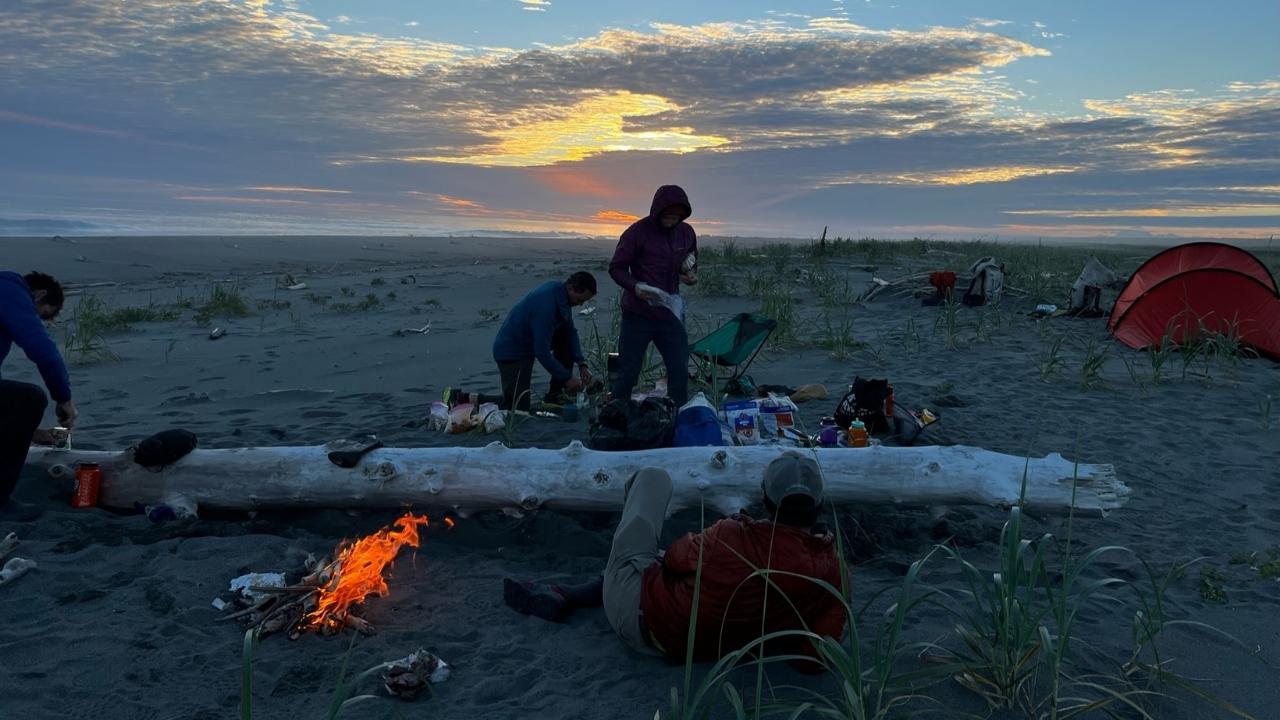
The Two Types of Winters
There are two types of winter transitions we’ll talk about. First, we have the literal changing of the seasons that we in the Northern Hemisphere are moving toward right now. Temperatures drop, the days are shorter, and the sun is weaker. During winter, we often sleep more. We might not want to leave the house as much. Our overall mood and energy levels can be lower.
...How to Make the Most of Shoulder Season: Transition with Intention
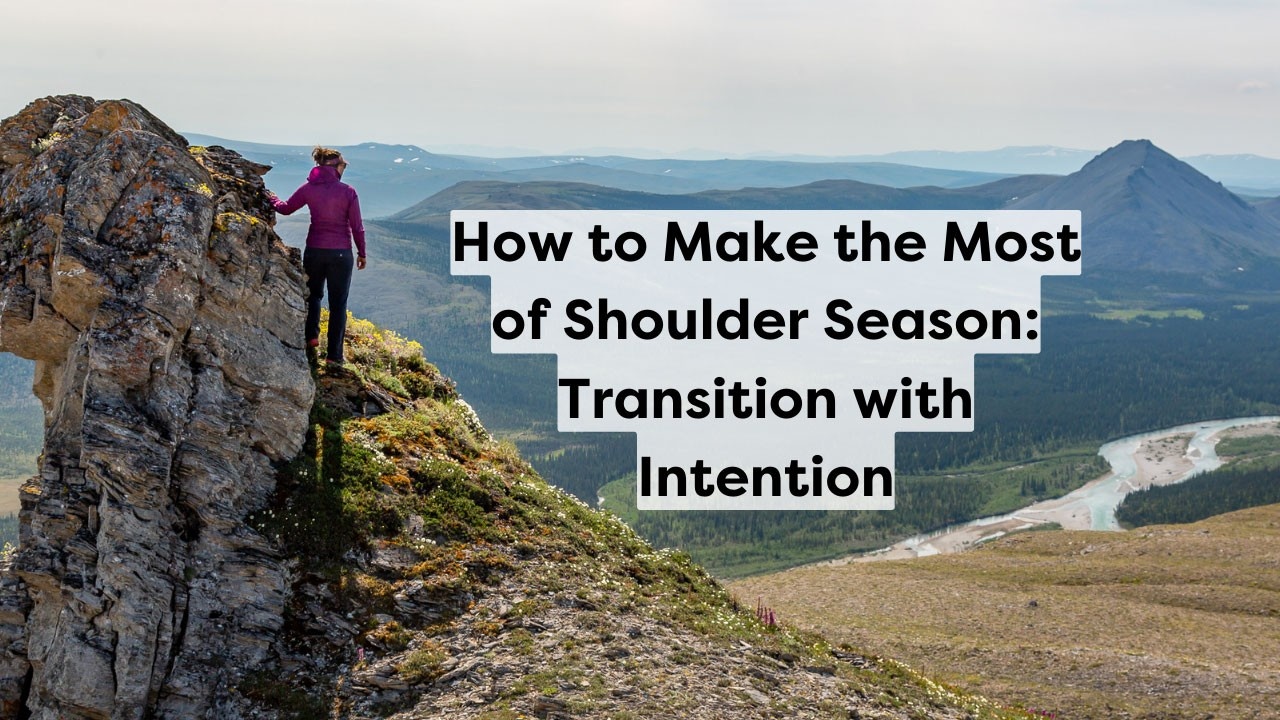
What Is Shoulder Season?
Shoulder season is a key time of year for any outdoor adventurer. It’s that in-between time when it’s not quite good weather for summer activities like hiking, but not cold and snowy enough for winter sports like skiing, either. When we say “shoulder season”, we’re not talking about training our arm muscles! What we actually mean is the transitional seasons between the big seasons of summer and winter, like spring and fall. (Wondering where the term comes from? Us too. Here are some theories.)
Depending on the climate where you live, the exact timing of your shoulder season might look a little bit different from others. The most important thing to remember is that it’s a time of transition. It’s the time when you’re switching focus. We all experience transitions differently. So, tune into your body and take a moment to reflect on when these yearly transitions happen for you and how they make you feel.
When thinking about our training, shoulder season doesn’...
